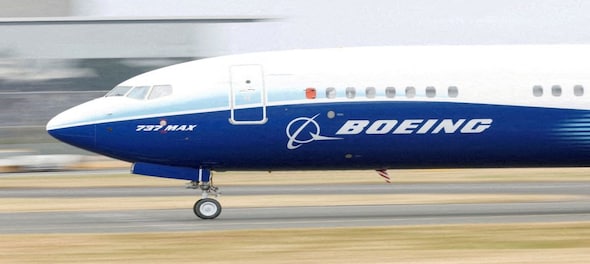
The skies have not been very clear for the Boeing 737 Max aircraft since its introduction in 2017 as the US aircraft maker continues to grapple with one or other issues related to the much-touted fuel-efficient plane.
The latest is the Federal Aviation Authority's warning about the engine anti-ice systems of the CFM LEAP engine that is powering a sizable chunk of this fleet worldwide.
The US aviation regulator has issued a new directive for all Boeing 737 MAX airplanes equipped with CFM Model LEAP-1B series turbofan engines.
The FAA has asked airlines using B-737 Max planes to limit the use of engine anti-ice systems.
The aviation watchdog said, "Using the engine anti-ice system in dry air for more than five minutes during certain environmental and operational conditions can damage the engine resulting in the fuselage or window damage."
Boeing in its statement to CNBC-TV18 said it supports the rule issued by the FAA on 737 MAX airplanes and is working with the aviation regulator to address this potential risk.
The FAA said if this condition is not addressed it can potentially cause decompression, pose a hazard to window-seated passengers, result in loss of control of aircraft and lead to a forced off-airport landing and injury to passengers.
There are about 29 Boeing 737 MAX planes operated by Indian airlines SpiceJet and Akasa Air. Air India has placed an order for 190 737 MAX in its 470 aircraft order.
Boeing in its statement said while there have been no safety incidents due to the anti-ice system, it can potentially shoot up the temperature of the inlet structure beyond its design temperature range under a very specific combination of weather and operational conditions.
"Boeing supports the rule issued by the FAA addressing a potential overheat issue for specific parts on the engine inlets on 737 MAX aeroplanes. Boeing has identified measures to mitigate the potential issue and is working with our customers to deploy those measures while a permanent fix is developed. We will continue coordinating closely with the FAA,” Boeing's spokesperson told CNBC-TV18.
Boeing also said it will send an updated Airplane Flight Manual operational guidance to airlines to address the issue in the near term while it is working with the regulator to develop a long-term fix.
According to people familiar with this development, this condition with the anti-ice system has not been seen in service, it was determined through analysis that it is a theoretical possibility under very rare circumstances and the company is working with FAA to fix it.
The Boeing 737 MAX aircraft was grounded for two years following two fatal air crashes in 2018 and 2019 respectively. And less than two years after it returned to the skies in June 2021, the aircraft continues to face turbulence. In April the company disclosed a production problem with two fittings in the aft fuselage that could delay its delivery pipeline.
Check out our in-depth Market Coverage, Business News & get real-time Stock Market Updates on CNBC-TV18. Also, Watch our channels CNBC-TV18, CNBC Awaaz and CNBC Bajar Live on-the-go!


Supreme Court says it may consider interim bail for Arvind Kejriwal due to ongoing Lok Sabha polls
May 3, 2024 4:57 PM
10% discount on fare on Mumbai Metro lines 2 and 7A on May 20
May 3, 2024 2:40 PM

